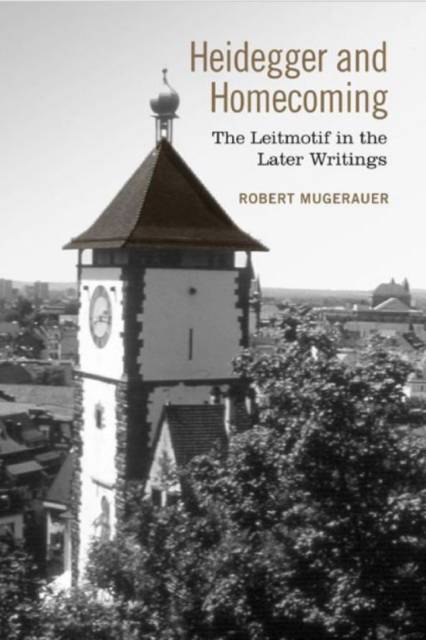
- Afhalen na 1 uur in een winkel met voorraad
- Gratis thuislevering in België
- Ruim aanbod met 7 miljoen producten
- Afhalen na 1 uur in een winkel met voorraad
- Gratis thuislevering in België
- Ruim aanbod met 7 miljoen producten
Omschrijving
Martin Heidegger's philosophical works devoted themselves to challenging previously held ontological notions of what constitutes "being," and much of his work focused on how beings interact within particular spatial locations. Frequently, Heidegger used the motifs of homelessness and homecoming in order to express such spatial interactions, and despite early and continued recognition of the importance of homelessness and homecoming, this is the first sustained study of these motifs in his later works.
Utilizing both literary and philosophical analysis, Heidegger and Homecoming reveals the deep figural unity of the German philosopher's writings, by exploring not only these homecoming and homelessness motifs, but also the six distinctive voices that structure the apparent disorder of his works. In this illuminating and comprehensive study, Robert Mugerauer argues that these motifs and Heidegger's many voices are required to overcome and replace conventional and linear methods of logic and representation.
Making use of material that has been both neglected and yet to be translated into English, Heidegger and Homecoming explains the elaborate means with which Heidegger proposed that humans are able to open themselves to others, while at the same time preserve their self-identity.
Specificaties
Betrokkenen
- Auteur(s):
- Uitgeverij:
Inhoud
- Aantal bladzijden:
- 640
- Taal:
- Engels
Eigenschappen
- Productcode (EAN):
- 9781442626812
- Verschijningsdatum:
- 26/02/2014
- Uitvoering:
- Paperback
- Formaat:
- Trade paperback (VS)
- Afmetingen:
- 152 mm x 229 mm
- Gewicht:
- 839 g

Alleen bij Standaard Boekhandel
Beoordelingen
We publiceren alleen reviews die voldoen aan de voorwaarden voor reviews. Bekijk onze voorwaarden voor reviews.












